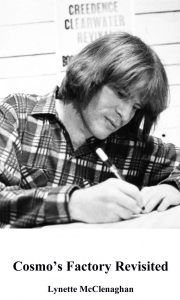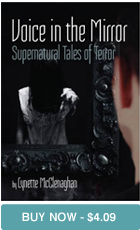November 22nd, 2016 |
Published in
music appreciation, music history, Reviews, Writer and Research
Review essay available November.
 Cosmo’s Factory Revisited is a tribute to John Fogerty and Creedence Clearwater Revival. A review and appreciation of a classic rock album.
Cosmo’s Factory Revisited is a tribute to John Fogerty and Creedence Clearwater Revival. A review and appreciation of a classic rock album.
“Cosmo’s Factory is the fifth studio album by American rock band Creedence Clearwater Revival (CCR), released by Fantasy Records in July 1970 and released as Fantasy 8402, the same month as the single release of “Lookin’ Out My Back Door” b/w “Long as I Can See the Light”. The name of the album comes from the warehouse in Berkeley where the band rehearsed early in their career. It was dubbed “The Factory” by drummer Doug “Cosmo” Clifford, because bandleader John Fogerty made them practice there almost every day.” – Wikipedia
April 19th, 2015 |
Published in
film, music criticism, music history, Self Publishing, Social Issues, Writer and Research
From the opening lines Ray’s autobiography is imbued with a personal touch which contrasts Mick Wall’s cynicism. Read the rest of this entry »
February 18th, 2015 |
Published in
Dark Tales, music biography, music criticism, music history, Reviews, Self Publishing, Writer and Research
Love Becomes a Funeral Pyre: Biography of The Doors by Mick Wall

Misunderstood genius and lost soul – couldn’t put it down
This biography of The Doors, America’s version of the 1960’s Rolling Stones, is brilliant, engaging and sometimes difficult to read. Wall paints an evocative portrayal of the path to self-destruction Jim Morrison paved for his short life. Tragic and intense, Wall captures the essence of how the band’s singer, young lion and iconic sex symbol, packed thirty years into three. Wall aptly foreshadows Morrison’s demise as tortured, often misunderstood genius, musician and poet. Along with his downward spiral he pulled his band down with him. Despite the open anarchy Morrison inflicted on his entourage and society the band seemed to miraculously resurrect itself. What makes this read even more compelling is his how Morrison College educated, awkward and overweight with no obvious musical talent became an accidental rock star.
Wall’s criticism of Morrison and the band’s keyboardist, Ray Manzarek, is often harsh. But it is easy to read against the flow of this and to see Morrison’s story as a tribute to the poet and social critic he wanted to be known as. Despite being comfortable as a misfit, he initially couldn’t resist the adulation he gained. However, it didn’t take long for the gloss to wear off and him shunning fame and the power it wielded it was always going to be too late for Morrison. Wall captures the decent of a lost soul so destroyed by drugs, alcohol and fame that he resembled the living dead. Even when Morrison was at his lowest points and inebriated he was still able to capture audiences with his poignant lyrics, unique voice and thought provoking philosophy.
I read this as a tribute to Morrison and The Doors regardless of what Wall may have intended.
 Cosmo’s Factory Revisited is a tribute to John Fogerty and Creedence Clearwater Revival. A review and appreciation of a classic rock album.
Cosmo’s Factory Revisited is a tribute to John Fogerty and Creedence Clearwater Revival. A review and appreciation of a classic rock album.







